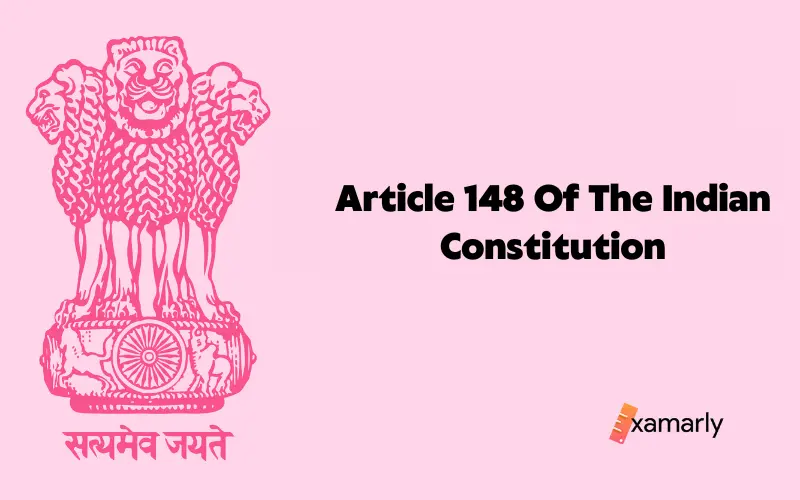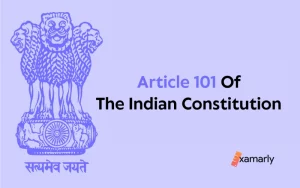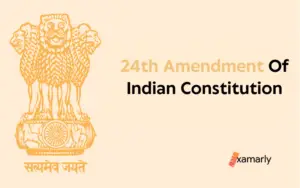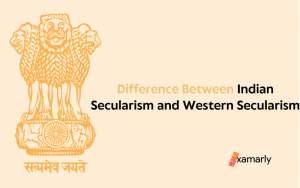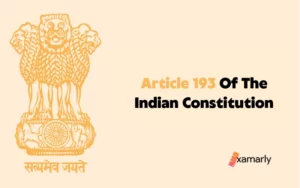Article 147 of the Indian Constitution talks about how the interpretation of the Constitution has to take place in a context of a prominent question before the Supreme Court and the High Court.
In the next few paragraphs, we’ll look at all the clauses in this article to get a better idea of what it’s trying to say.
What Does Article 147 Of The Indian Constitution Say?
147. Interpretation In this Chapter and in Chapter V of Part VI references to any substantial question of law as to the interpretation of this Constitution shall be construed as including references to any substantial question of law as to the interpretation of the Government of India Act, 1935 (including any enactment amending or supplementing that Act), or of any Order in Council or order made thereunder, or of the Indian Independence Act, 1947 , or of any order made thereunder CHAPTER V COMPTROLLER AND AUDITOR GENERAL OF INDIA
The clause in Article 147 of the Indian Constitution says that the interpretation of the Government of India Act, 1935 (including any enactment amending or supplementing that Act), of any order in council or order made thereunder, or of the Indian Independence Act, 1947, is referred to in this chapter and in Chapter V of Part VI.
The same is also taken to mean that it applies to any important legal question about how to understand this Constitution.
Related – Article 145 Of The Indian Constitution
Summing Up
We can conclude from Article 147 of the Indian Constitution that the interpretation of the Government of India Act, 1935, or any enactment amending or supplementing that Act, or of any Order in Council or order made thereunder, is referred to in Part VI of the Indian Constitution.
FAQs
How will the constitutional provisions be enforced?
It is standard practice for all constitutional provisions to be legally binding. If, on the other hand, some wiggle room is required, the constitution should spell out who is accountable for enforcing and implementing which articles and when.
The constitutional court of the nation may utilise its power to enforce the requirement if the state has not done so by the deadline. The constitutional court is vested with the duty and jurisdiction to uphold constitutional requirements in most cases.
Non-judicial authorities, such as an ombudsman, with enforcement powers and acting as a conduit between government bodies and people, augment most constitutional courts. Despite its lack of legal status, civil society has the potential to play the role of constitutional watchdog.
What can a constitution do to bring about inclusive democracy?
There are several approaches via which a constitution might actively foster a more welcoming democracy.
Implementing an electoral system that guarantees a wide range of candidates in the legislature, establishing rules that require or encourage political parties to include a wide range of candidates, establishing federalism as a governing structure that may give people control over decisions that directly affect them, devolving power to the local level, establishing rules that require public institutions to reflect the diversities of the areas they represent, empowering the local government, and so on are all good examples.
What is entrenchment?
Entrenchment is an inherent feature in most written constitutions. Entrenchment deals with the legal procedures for the modification of a constitution.
An unentrenched constitution does not recognise the constitutional law as different or supreme and thus constitutions can be modified easily. Procedures for ratification of constitutional amendments vary across states.
What is a constitutional court?
When it comes to questions of constitutional interpretation, only a constitutional court has original and ultimate authority.
It also has the only power to rule on cases challenging the constitutionality of legislation or the conformance of government acts to the Constitution.
Not every judicial system has its own set of constitutional courts that are apart from regular courts. For instance, the US Supreme Court has the authority to rule on constitutional issues in the US legal system.


